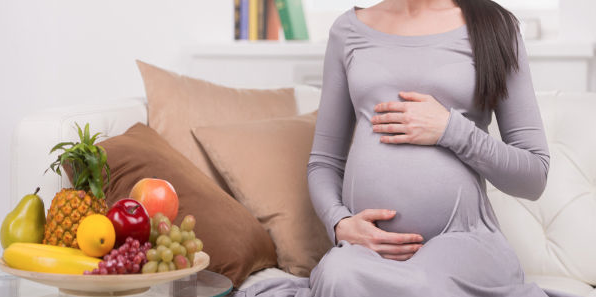
A healthy diet and lifestyle is super important at any time however it is vital for mums to be as a healthy eating will help your baby to grow and develop and you’ll be less likely to suffer from any complications.
You don’t need a special diet, but you do need to pay attention to what you’re eating and ensure that you’re eating a variety of different foods to get all the nutrients that you and your baby needs.
So, carry on reading (& watching!) for my top 5 questions and answers about diet and pregnancy!
- 1) What does a Healthy & Balanced Pregnancy Diet consist of?
A healthy and balanced diet consists of eating plenty of fruit and vegetables for vitamins, minerals, and fibre which will help to keep you healthy and prevent constipation. Ideally we should be eating 5-9 portions of fruit and vegetables a day, with a portion being around a handful or 80g; so for example an apple, a small bowl of salad or 3 tbsp of peas. Aim to fill 1/3 of your plate with vegtables or salad at a meal and if you’re hungry between meals have a piece of fruit – to jazz it up you could have a banana with nut butter or an apple with some light cheese.
Protein, which includes meat, fish, eggs, and pulses as well milk and yoghurt should also take up around a 1/3 of your plate or bowl, as our bodies need protein to grow and repair. Aim to eat two portions of fish a week, one of which is oily e.g. salmon, mackerel or sardines. Make sure that all of your foods are cooked thoroughly to prevent food poisoning and choose leaner cuts of meat where possible, avoiding liver as it contains too much vitamin A. If you really don’t feel like eating then a glass of milk is ideal as it will provide you with calcium, protein and slow release energy as well as keeping you hydrated.
Wholegrain or slow release starchy carbohydrates such as sweet potato, oats, wholemeal pasta, basmati rice or granary bread will also provide your body with vitamins and energy as well as fibre – so aim to fill about a 1/3 of your plate with these at a meal to keep you fuelled for the entire day.
Keeping hydrated is also really important, along with eating fibrous foods as it will help to keep you digestive system moving – aim for your wee to be pale rather than darker!
Other things to think about are not having too many foods that are high in fat, sugar and calories such as biscuits, chocolate and sweets as these these foods won’t nourish you or the baby and too many of them could lead to excessive weight gain.

- 2) Are there any Foods or Drinks to Avoid during Pregnancy?
If you’re a tea or coffee lover then take note – caffeine should be limited to no more than 200mg a day, which is the equivalent to approximately two mugs of instant coffee or tea a day, or five cans of cola. Alcohol should also be avoided.
You should also avoid eating unpasteurised soft cheeses with mould e.g. Brie and Camembert or soft blue-veined cheeses which may contain listeria, as well as all types of pate. And avoid eating raw or undercooked eggs (poached or dippy eggs which have the lion stamp are ok to have!) due to a risk of salmonella as well as undercooked meat.
Regarding fish, you should avoid eating shark, marlin and swordfish due to contaminants such as mercury and you should limit fresh tuna steaks to twice a week and canned tuna to four times a week. Eat oily fish such as salmon, mackerel and sardines which is great for heart health, no more than twice a week.

- 3) How many Extra Calories do you need when you’re Pregnant?
It’s unfortunately a myth that you need to “eat for two” when you’re pregnant as your body actually doesn’t need any extra calories for the first six months. In the last three months of pregnancy your body may need a little extra food, around 200 calories which is the equivalent of a bowl of fruit & yoghurt, porridge made with milk or a slice of granary toast with peanut butter and banana.
Make sure to eat nutrient rich foods throughout your pregnancy so that your baby can thrive.
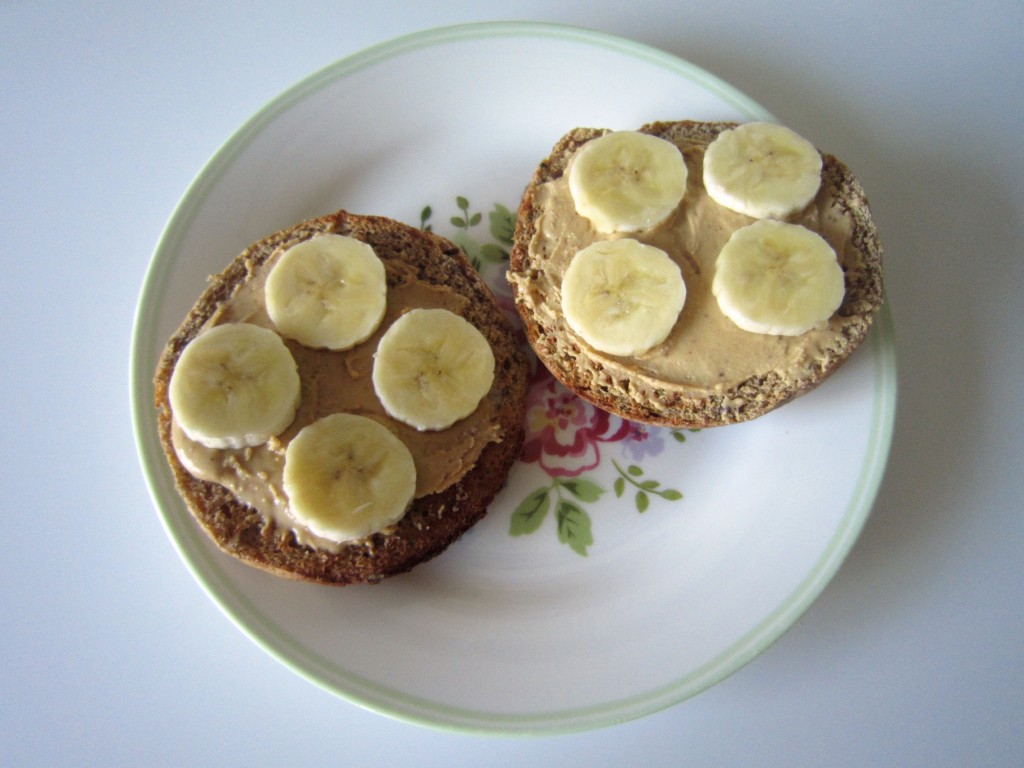
- 4) What Dietary Supplements do you Need when you’re Pregnant, if any?
The UK Department of Health recommends that pregnant women should take a daily 400 mcg folic acid supplement up to the 12th week of pregnancy, and it should actually be started before pregnancy, i.e. once contraception is stopped. Some women, for example those with diabetes, need a higher dose of folic acid (5 mg). It is also recommended to eat a diet rich in folate i.e. including green vegetables such as spinach or kale as well as fortified breads and cereals. Folic acid and folate help to prevent neural tube defects (NTD) in babies. Pregnant ladies should also take 10 mcg of vitamin D daily to help prevent rickets in babies.
There are specific multivitamins and minerals for pregnant women available which combine both the folic acid and vitamin D and exclude vitamin A, which in large doses can cause birth defects. A pregnancy suitable multivitamin and mineral is not however a substitute for a healthy balanced diet.
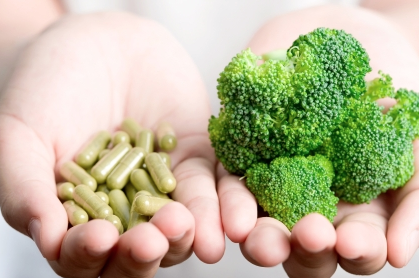
- 5) What is a Healthy Weight Gain when you’re Pregnant?
It is recommended that if you are overweight (Body Mass Index or BMI of over 25 before pregnancy) to gain around 1 stone, if you are of a healthy weight (BMI 18.5-24.9 before pregnancy) to gain around 2 stone and if you are underweight (BMI of less than 18.5 before pregnancy) to gain around 3 stone.
It is best to avoid excessive weight gain during pregnancy in order to have a more comfortable and enjoyable pregnancy, to reduce the risk of pregnancy complications and to have less weight to lose after you have baby! It is not recommended to try and lose weight during your pregnancy.
NB – The BMI calculator does not apply once you are pregnant. You can work out your BMI [here]. BMI doesn’t take into account muscle mass or fat mass however it is a useful tool for the majority of people.
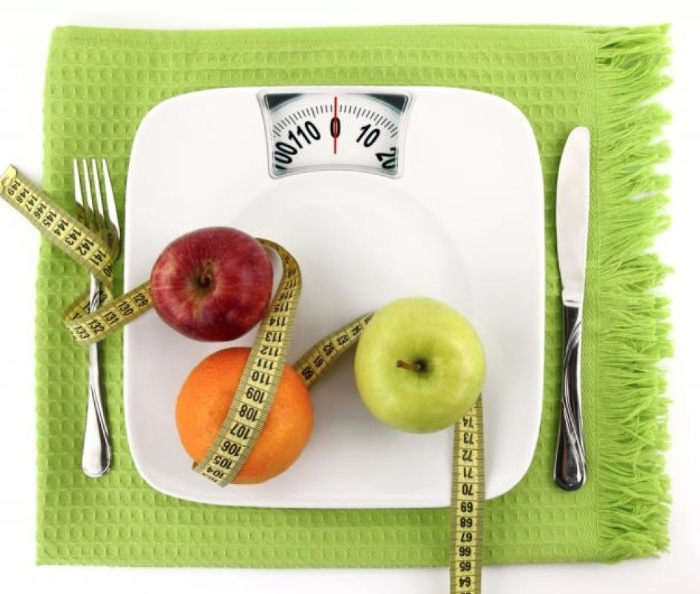
I really hope that you’ve found this blog post & video useful.
For more information about pregnancy check out the NHS Choices website.
*This blog post is not a substitute to personal advice given by your health care professional. This blog post contains an affiliate link. Please read my disclaimer page for more information.
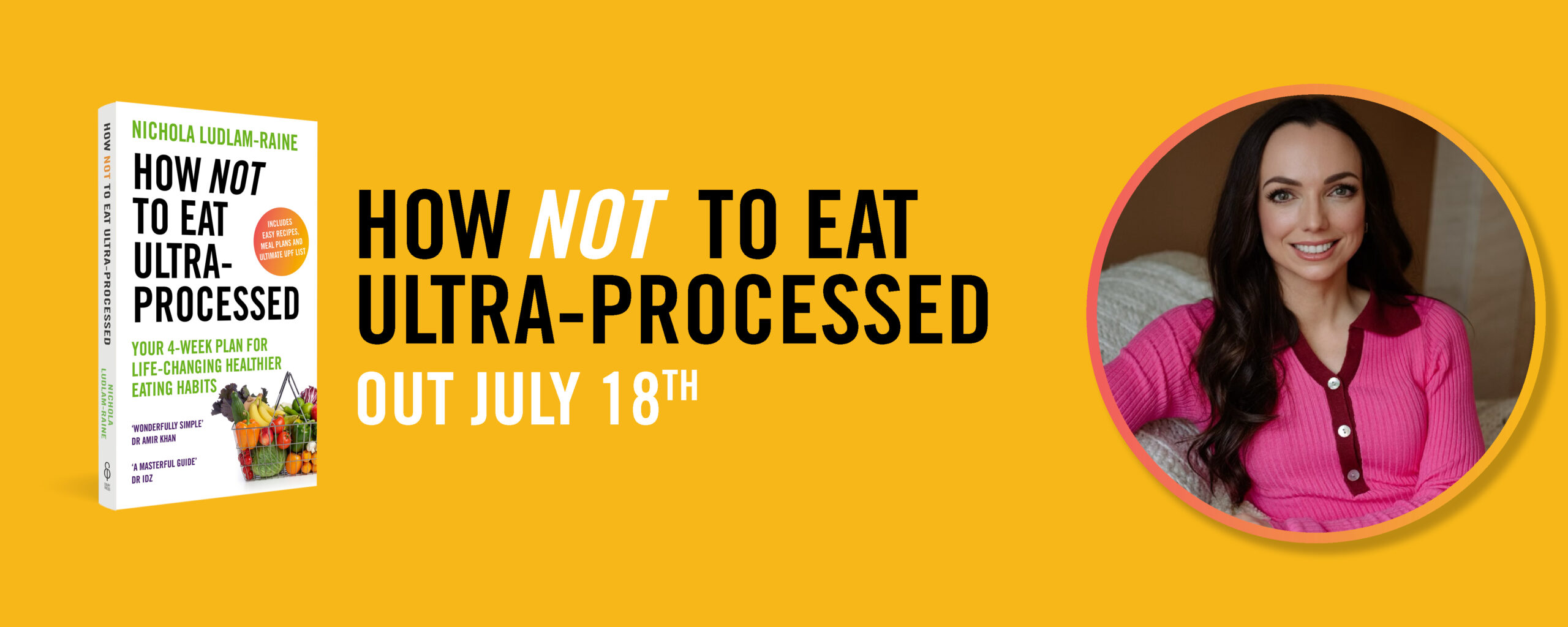
Haha, that’s pretty much everything I’ve just learnt on my Pre- and Post-natal nutrition course!
Haha great stuff 🙂
Hi Nic,
I’m almost 18 weeks pregnant and I’m struggling to find any information on using protein powder during pregnancy. I workout 3-4 times a week and used to have protein powder in my porridge, smoothies or drinking on its own after my workouts. We have whey protein from Myprotein in Vanilla flavour. Is it ok to use or are there any brands that you would recommend? Many thanks. S
Hello! If all it is is whey then you should be ok. Avoid any with added extras e.g. caffeine or green tea etc! Of course though I don’t know your medical background so this is general advice 🙂